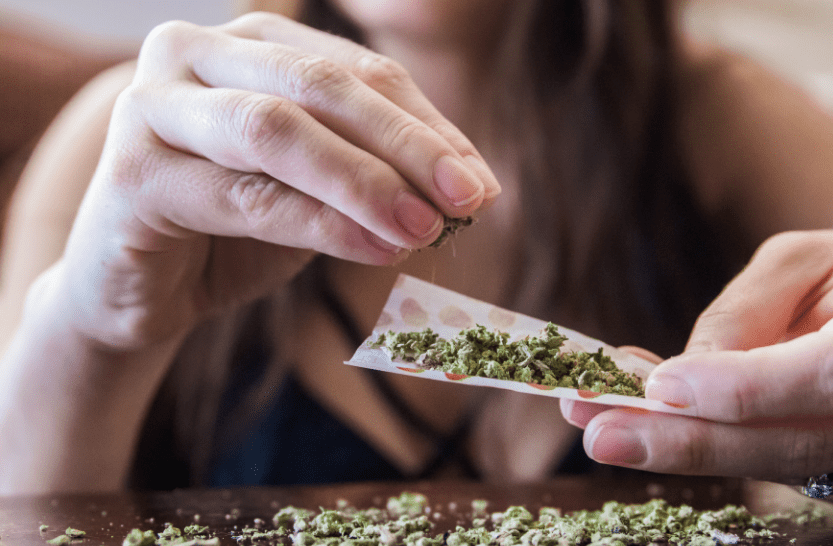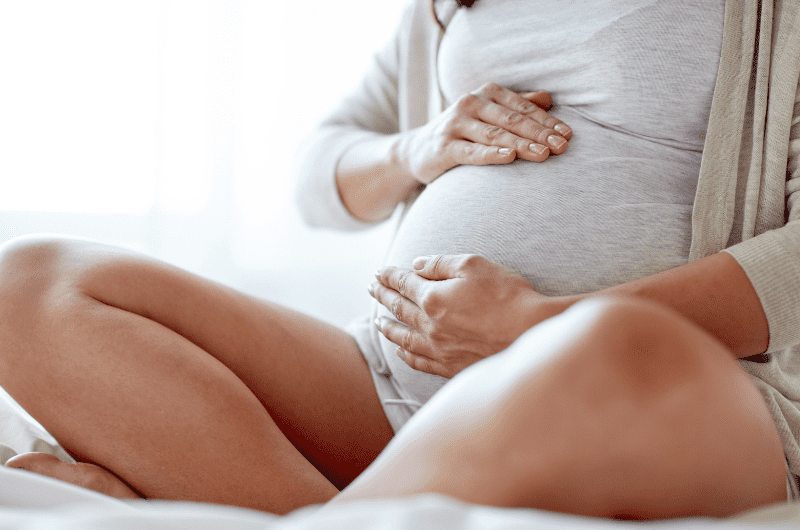Marijuana is the most commonly used illicit drug in the world, with an estimated 100 million people using it. It is also the most common drug to cause pregnancy complications, especially among women who are using other drugs, or who are using it during the early stages of pregnancy.
The safety of using marijuana during pregnancy has been the subject of much debate. But the available evidence indicates that marijuana use during pregnancy should be avoided due to the potential risks it poses to the fetus, even when used only occasionally. This article will review the current scientific literature on the effects of marijuana use during pregnancy, as well as the risks posed by marijuana use to the fetus.
What Does the Science Say about Marijuana and Pregnancy?
Marijuana is the most frequently detected illicit drug in pregnant women. It is estimated that between 10 and 30% of pregnant women report using marijuana during pregnancy.
Although most studies report no increased risk of major congenital malformations in the children of marijuana users, a few studies have found an increased risk of certain congenital anomalies. These anomalies include an increased risk of spina bifida, an increased risk of congenital heart defects, and a higher incidence of privy (an abnormal opening in the vagina) in newborn infants.
Short-term Effects of Marijuana Use During Pregnancy
The short-term effects of marijuana use during pregnancy are likely very similar to those of other drugs, such as alcohol and cigarettes, which are also known to increase the risk of pregnancy complications. These complications include low birth weight, premature birth, and neonatal death.
Marijuana and Birth Defects
Because of the way marijuana is metabolized in the body, it is possible that, over the long term, marijuana use could lead to a higher risk of birth defects. However, there is no strong evidence to suggest that this is the case in either humans or animals.
It is worth noting, however, that because marijuana is metabolized by the body’s endocannabinoid system, it is possible that using marijuana (or products that contain CBD) could reduce the risk of birth defects by acting on this system.
Marijuana and Miscarriage
Evidence suggests that marijuana use during pregnancy causes an increased risk of miscarriage. This risk is likely due to its effects on the immune and inflammatory systems of the body.
In fact, one study found that when the immune systems of mice were exposed to the chemicals found in marijuana, the chemicals were able to trigger inflammatory responses in the mice similar to those triggered by a virus. While it is not yet clear whether or not marijuana causes miscarriages in humans, it is recommended that pregnant women avoid smoking marijuana.
Marijuana and Pre-eclampsia
One of the most concerning risks of marijuana use during pregnancy is its association with pre-eclampsia. Pre-eclampsia is a condition that can cause significant complications during pregnancy, such as the development ofmia, seizures, HELLP (high blood pressure, elevated liver enzymes, low platelets), and high blood pressure.
Studies have found that, when pregnant women are exposed to the compounds found in marijuana, these women are at a higher risk of developing pre-eclampsia. As with many other drugs, it is unclear whether or not marijuana causes pre-eclampsia, or whether this risk is inherent to being pregnant.
It is recommended that pregnant women who use marijuana abstain from marijuana in order to reduce their risk of developing pre-eclampsia.
Marijuana and Intrauterine Growth Restriction
One of the most concerning risks of marijuana use during pregnancy is its association with intrauterine growth restriction (IUGR). IUGR is a condition in which a fetus is born relatively small for its gestational age (Gestational age is a measurement of how far along in pregnancy a woman is. It is calculated by subtracting the date of conception from the date of birth).
Studies have found that, in states where marijuana is used frequently, there is a higher incidence of IUGR in newborn infants. It is unclear whether IUGR is due to the direct toxic effects of marijuana on the fetus, or if there is some other mechanism at play. Regardless, it is recommended that pregnant women who use marijuana abstain from marijuana in order to reduce their risk of developing IUGR.
Marijuana and Premature Birth
Studies have found that, among pregnant women who use marijuana, there is a higher incidence of preterm birth (i.e., birth that occurs before 37 weeks of gestation). It is unclear if this is due to the direct toxic effects of marijuana on the fetus, or if there is some other mechanism at play. Regardless, it is recommended that pregnant women who use marijuana abstain from marijuana in order to reduce their risk of developing preterm birth.
Marijuana and Postpartum Depression
One of the most concerning risks of marijuana use during pregnancy is its association with postpartum depression. Depression during pregnancy is associated with an increased risk of developmental issues in the child, such as cognitive and behavioral disorders.
Studies have found that, among women who use marijuana during pregnancy, there is a higher incidence of postpartum depression. It is unclear if this is due to the direct toxic effects of marijuana on the mother, or if there is some other mechanism at play. Regardless, it is recommended that pregnant women who use marijuana abstain from marijuana in order to reduce their risk of developing postpartum depression.
Summary
There is a lot of conflicting information regarding the safety of using marijuana during pregnancy, as well as the effects that marijuana use has on the fetus. However, the available evidence indicates that while marijuana use during pregnancy may have some short-term benefits, it is best avoided due to the potential risks it poses to the fetus, even when used only occasionally.
These risks include an increased risk of birth defects, miscarriage, pre-eclampsia, IUGR, and postpartum depression. It is recommended that pregnant women who use marijuana abstain from marijuana in order to reduce their risk of developing these complications.
Asheville Recovery Center Can Help
Fortunately, there are ways to prevent substance abuse and help those who are already struggling. If you or someone you know is struggling with addiction, it is important to get treatment. At Asheville Recovery Center treatment specialists utilize a 12-step program and practice holistic rehabilitation.
Services at the center include:
Partial Hospitalization Program – At Asheville Recovery Center we offer a partial hospitalization program for clients who need post-residential treatment as well as for clients who need primary treatment but are unable to enroll in inpatient programs. Our PHP track offers a variety of therapeutic services and benefits to individuals in early recovery from substance addiction.
Outpatient Rehabilitation – During intensive outpatient treatment (IOP), clients live at home or in a sober living residence while completing an addiction treatment program. IOP is a place where clients can process their experiences in twelve-step fellowships and support one another in those individual journeys.
Addiction is difficult to overcome alone. If you feel that you or a loved one is struggling with substance abuse, our specialists are on standby and ready to help. Call and speak with an addiction expert today.








